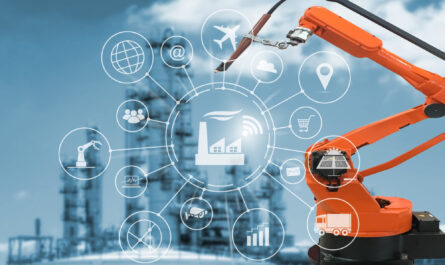Smart Cities of the Future
As technology advances at a lightning pace, urban areas around the world are undergoing rapid transformation. Smart technologies are enabling cities to operate more efficiently, becoming more connected and sustainable. Through innovation, data and connectivity, Smart Cities promise to solve pressing urban challenges and improve the lives of citizens.
What is a Smart City?
A Smart City leverages information and communication technologies to enhance performance and living standards. Some key aspects that define a Smart City include:
Connected Infrastructure
At the core of a Smart City is digital infrastructure that connects various elements. This includes high-speed internet connectivity through fiber optics and 5G networks. Sensors embedded in streets, buildings and public spaces collect real-time data. Drones, cameras and other IoT devices help monitor infrastructure and traffic flow.
Intelligent Transportation
An efficient transportation system is crucial for Smart Cities. Transportation systems leverage technologies like smart traffic lights, intelligent traffic management systems and mobility as a service (MaaS) apps. These use artificial intelligence and real-time data to minimize traffic congestion and enable smarter commute options. Drones and autonomous vehicles will transform deliveries and transportation.
Sustainable Energy Management
Renewable energy sources and Smart Grid technologies help power Smart Cities in a clean and sustainable manner. Two-way communication between suppliers and consumers manages energy usage. Solar panels, wind turbines and smart meters optimize power generation and usage. Energy storage solutions enable better integration of renewables. LED street lights optimize lighting.
E-Governance and Citizen Services
E-governance platforms offer a wide range of government services online, making public services easily accessible to citizens. Apps help access utilities like paying bills, applying for permits, filing taxes etc. Smart parking systems and intelligent waste management optimize city operations. Integrated command and control centers monitor operations.
Challenges in Building Smart Cities
While promising numerous benefits, effectively transforming cities into smart ones is not without challenges:
High Upfront Costs
Building digital infrastructure, deploying sensors and pilot projects requires huge capital investments. Retrofitting existing cities with smart solutions increases costs manifold. However, experts estimate that returns offset costs over the long-term through resource optimization.
Interoperability Issues
Ensuring various smart solutions and platforms deployed by different agencies and vendors seamlessly connect is a major technical challenge. Standardization of technologies and protocols is needed for interoperability.
Data Management and Analytics
Huge volumes of data generated from smart systems needs effective management and analysis for proper insights. Ensuring data security, privacy and accessibility also needs attention. Skill gaps in data analytics need to be addressed.
Citizen Participation
For smart initiatives to succeed, it is crucial to address any adoption challenges, gain public understanding and participation. Change management is crucial in transitioning to smart ways of living and working.
Role of Public Private Partnerships
Tapping private sector expertise and capital through innovative PPP models can help cities overcome resource constraints. Close collaboration between governments, companies and citizens is necessary for successful smart transformation.
Smart City Initiatives in India
India has embarked on an ambitious mission of developing 100 smart cities with a budget outlay of $30 billion. Some key Indian smart city projects currently underway include:
Smart City Projects in Delhi
Delhi is developing neighborhood areas like New Delhi Municipal Council (NDMC), Dwarka and Shahdara as smart zones with focus on affordable housing, renewable energy, waste management, public transport and E-governance.
Kochi Smart City, Kerala
Kerala’s commercial capital Kochi is transforming into a sustainable smart city. Projects include water transport along canals, solar panel powered boats, EV charging stations, smart poles with CCTV and WiFi.
Surat Smart City, Gujarat
Once known for urban flooding, Surat aims to become India’s cleanest and greenest city. Projects underway include smart parking, adaptive traffic signals, flood management systems and electric buses.
Pune Smart City, Maharashtra
Pune is developing an integrated command and control centre and leveraging IoT for applications like waste collection, water management and urban mobility apps for citizens.
Bhopal Smart City, Madhya Pradesh
The capital city of Bhopal is undertaking initiatives like solar fencing, hybrid annular solar lights, smart roads, intelligent traffic signals and energy efficient street lighting.
Urban digitization through smart programs is revolutionizing infrastructure planning and the overall urban experience. While challenges exist, Smart Cities promise more efficient, sustainable and inclusive living for the future. With collaborative efforts, India is progressively enhancing the quality of life for millions through smart solutions.
Note:
1. Source: Coherent Market Insights, Public sources, Desk research
2. We have leveraged AI tools to mine information and compile it




